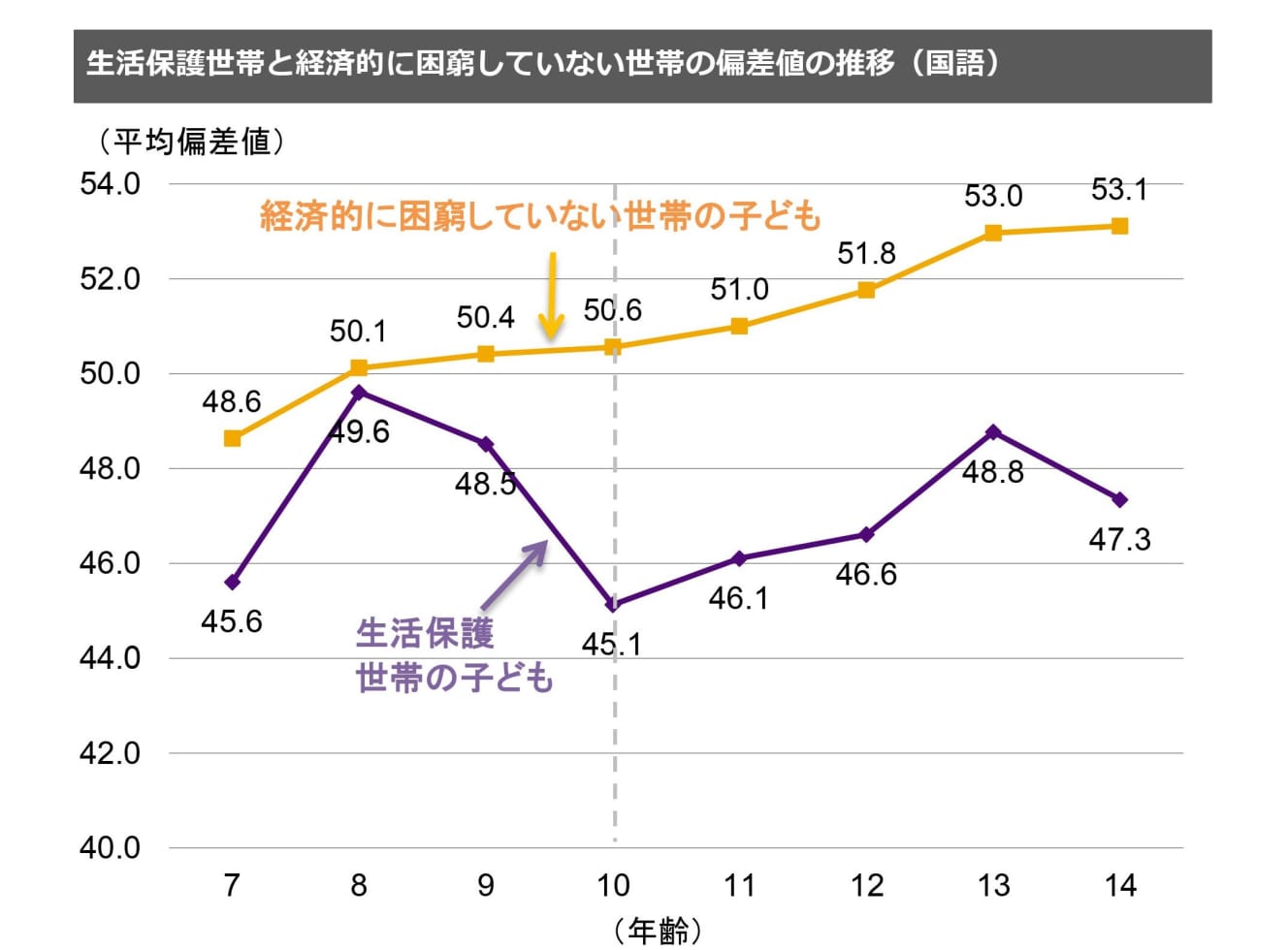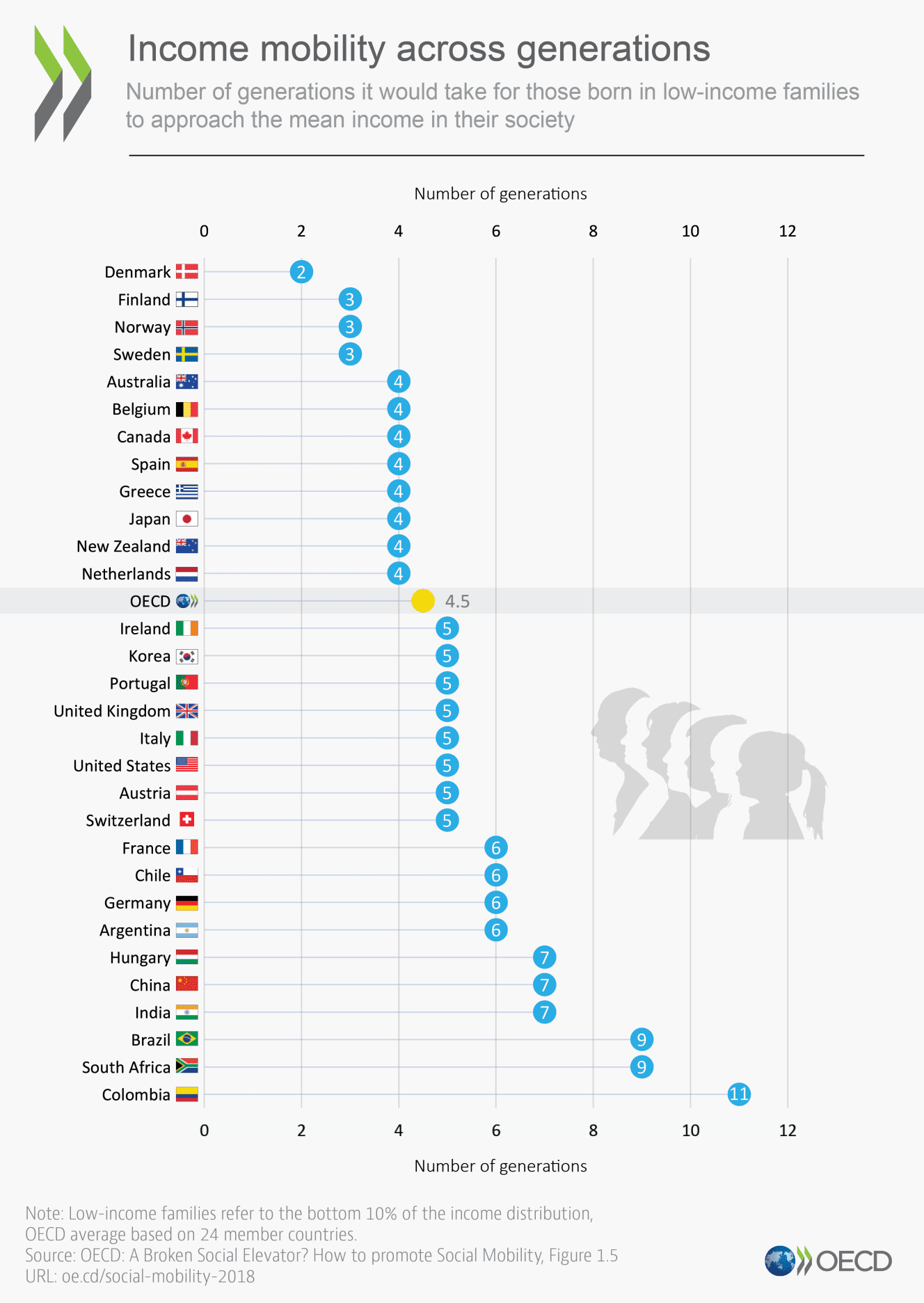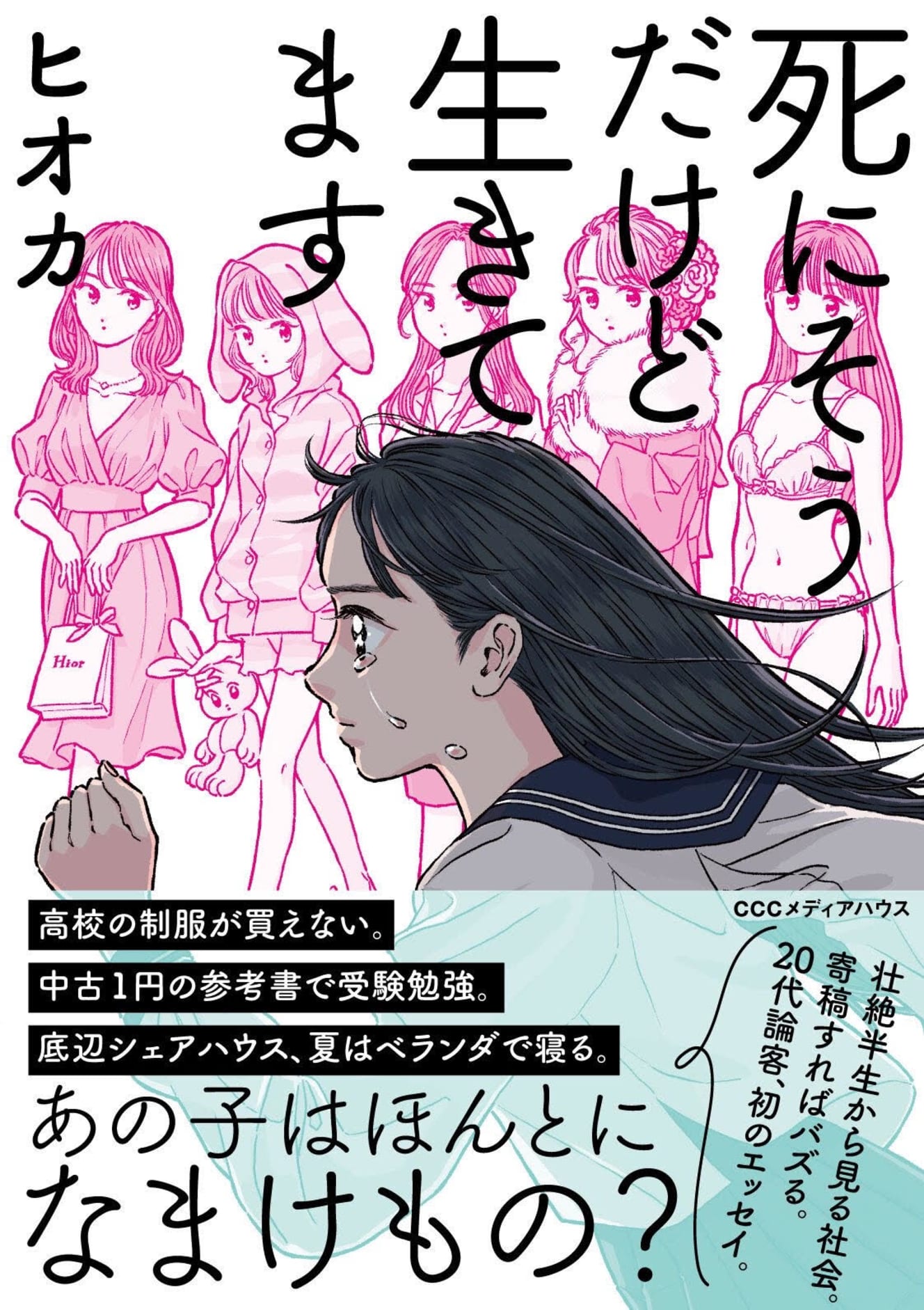A Writer on Poverty Issues on “Life Begins with a Negative
The pain that those who are “born with it” do not understand.
My relatives are all laughably poor. My aunt and uncle all graduated from junior high school and have been working part-time jobs. I never received any New Year’s money, and I was told that going to high school was a luxury, so for a long time I thought that there was no such thing as a university system in the Showa period.
I thought for a long time that there was no college system in the Showa period,” says Hioka, a writer. Poverty among children leads to an education gap, which in turn leads to a gap in annual income, and the social loss is said to be as much as 40 trillion yen. We asked her about the situation of the poor in Japan.

People running on the paved road and those who fill in the holes before walking away
He added, “If you’re poor, get a high school diploma and go to work.””You, too, make a living off poverty, don’t you?” When Mr. Hioka contributes his own experiences, he receives sympathy, but at the same time, the Internet is flooded with many slanderous comments.
“I was poor too. The reason I can’t get out is because I’m not trying hard enough. But there is a huge gradation among the poor, and no two people have the same starting point.
Parents spend the money from their part-time jobs, don’t allow their children to go on to higher education, come to them without asking for money, or have domestic violence problems even after they enter the workforce. What they are carrying on their backs is different, so their case is completely irrelevant to other people’s circumstances. If you say, “If you work hard, you won’t be in that situation,” then how do you explain the low wages of essential workers?
There are two types of people in the world: those who can run on a paved road quickly and easily, and those who can only start walking after filling in the holes in the road. Mr. Hioka’s image is like that. The number and depth of the holes are different for each person.

The “poverty tax” that increases due to lack of initial investment and lack of options.
There are holes everywhere that need to be filled. For example, there are those who give up club activities in junior high and high school because they cannot afford to pay for uniforms. If you don’t participate in extracurricular activities, you will have less to put on your unofficial application, which will affect where you go to school and, in the future, your job search.
In interviews, I am often asked why I didn’t join an athletic club, but people don’t know that there are people who can’t participate in club activities. Even in college, my friends are accumulating things they can put on their résumés, such as “I’ll take the civil service exam, get a teaching license, and do volunteer work. I can do that because my parents are paying my tuition and living expenses and I don’t have to work part-time.”
Poor people cannot afford the initial investment and cannot have the initial cost; they buy rice balls from convenience stores because they don’t have the money to buy 5 kilograms of rice. They know that buying cheap food is more expensive, but they have no choice in all aspects of their lives, and they end up losing money. This phenomenon is called the “poverty tax,” and it makes it difficult for people to escape from their current situation.
However, the poor living conditions caused him to lose confidence in his physical strength, and he was unable to raise the money to go abroad, so his dream was shattered. Even so, Hioka says he was blessed that his parents did not interfere with his career path. He had no choice but to take the entrance exam for a national or public university. He had to pay the entrance fee before the scholarship would be released, and his mother borrowed money to pay for it. That was the extent of the family’s support, and I had to cover all subsequent expenses on my own. The repayment of the scholarship will continue endlessly in the future.
Even after leaving his parents’ house, he could not afford to live alone, so he moved from one shared house to another with only his carry-on case.
He says, “Although shared housing does not require initial expenses such as furniture, the environment and people’s quality of life decrease in proportion to the rent. If one cog in the wheel goes awry, the whole thing collapses, and I had the sense that this loop was continuing.

The 50,000 yen benefit for tax-exempt households… The selection of “those who should be helped” and “those who should not be helped” has begun.
Mr. Hioka is currently earning a living as a part-time office worker while continuing to work as a writer. Although he is finally able to live on his own, his life is as difficult as ever.
Recently, the government decided to provide 50,000 yen to households exempt from residential tax. Mr. Hioka’s reaction to this was a simple, “Are you stupid?” He said, “The government is really trying to make tax-exempt households pay 50,000 yen.
The government is really concerned about tax-exempt households,” he said. The working poor are the first to be cut off because if they work for a little while, they will be excluded from the benefit. As a former tax-exempt household member like myself, I can understand the public’s anger.
At the same time, the discussion of the Corona Benefit has always been fueled by bashing of tax-exempt households, so I think, “The recipients of the benefit are also inconvenienced, so please stop limiting the benefit to tax-exempt households.
The poor who are diligent and hard-working should be supported, and those who are poor due to their own lack of effort should not be helped. Such a mindset has become mainstream, and an unspoken selection process has begun, according to Mr. Hioka.
I don’t think it’s possible for a third party to measure what kind of force majeure brought about this situation. Yet, the situation has become one in which the recipients are blamed for their lack of effort based on a single generation. In Japan, the culture of donation has not taken root, and I feel that it is cruel that tweets about “hardworking people’s money being given away to people who don’t work” tend to get a lot of attention.

According to a 2018 OECD study, it takes four generations or more than 100 years for a child from a poor family in Japan to reach the average income. And the percentage of tax-exempt households that are hit with every benefit is as high as 27% of the total. It is not the weak who should be hit, but the country that has neglected the problem of inequality.
Many of the policy makers are “native strongmen. It is still fresh in our minds that Bank of Japan Governor Haruhiko Kuroda’s comments came under fire. In 2008, then Prime Minister Taro Aso, who was the target of criticism for dining out at fancy restaurants, was also in the news for not knowing the market price of cup ramen noodles. It seems that the weak do not exist in the eyes of the strong.
My basic theme is “invisible pain. There are many people who are “left out,” such as second-generation religious believers, foreign workers, and young caregivers, as well as the poor. I hope to continue writing about them.

Hioka is a writer born in 1995. She became a writer after her own experience “50 things that made me different from the norm”–Poverty means not having a choice,” which was published on Note. With the motto “Imagination for the pain of being left out”, she has contributed to “Diamond Online” (Diamond), “Gendai Business” (Kodansha), and other publications. As a young debater, he has appeared in newspapers, on TV, and on the radio.
Interview and text: Chimasa Ide Photo: Afro